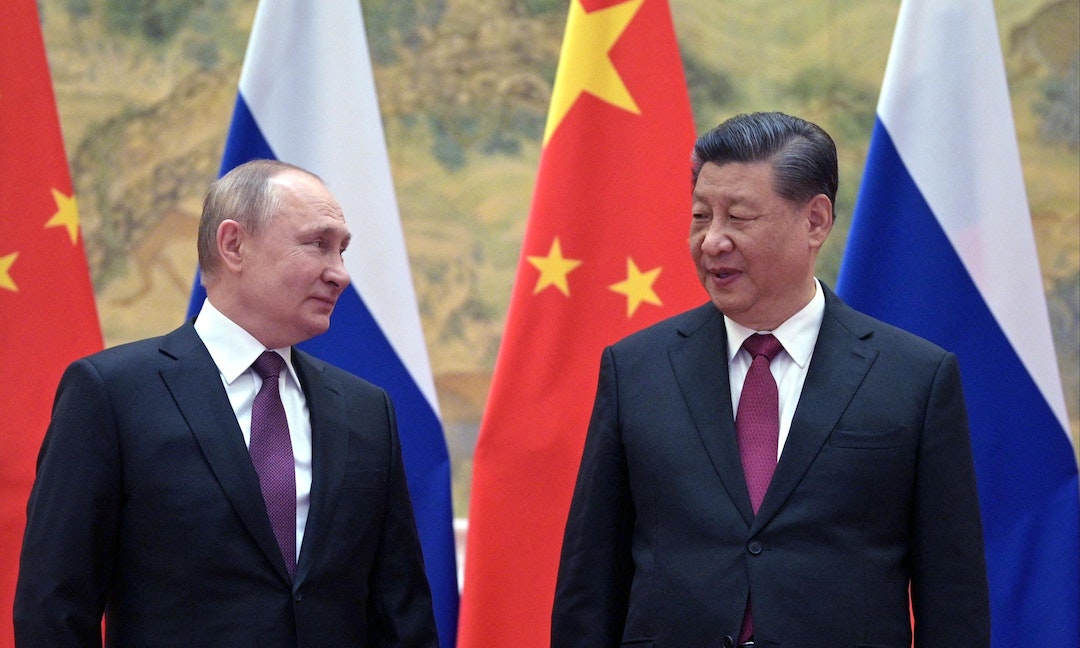
Strategic clarity arises in a crisis. When the world is relatively stable, the strategic calculations of the major powers are deliberately couched and clouded. Conflicts clear our minds. The ongoing crisis in Ukraine is resulting in havoc. However, it also allows us to step back and see where everyone stands.
Over the last 13 months, Russian President Vladimir Putin’s misadventure in Ukraine has reignited the North Atlantic Treaty Organization. It was not long ago that NATO countries were squabbling among themselves. However, a common threat is a great unifier. That is exactly what Putin did. He gave NATO a new life. If Putin feared NATO’s expansion before his invasion, his actions have further accelerated the grouping’s enlargement. Once neutral, Finland and Sweden have been quick to yank off the badge of non-alignment and apply to join the alliance.
The war in Ukraine is also alarming chancelleries in Asia. Japan’s leader Fumio Kishida has warned that East Asia could be the next Ukraine. This was not the case a few years ago. Like Germany, Japan too believed that trade and commercial interdependence with Russia would mollify Moscow. When then Chancellor Angela Merkel was courting Moscow, Japan’s Shinzo Abe was engaging Putin to reach a compromise on their dispute over the four southernmost Kuril Islands in the North Pacific.
China’s President Xi Jinping’s growing ambitions in Asia and Putin’s assault on Ukraine have cleared the strategic illusion in Tokyo. Under Kishida, Japan has demonstrated considerable interest in developing sophisticated weaponry and has pledged to double its defense expenditure.

On the other hand, Beijing and Moscow are reinforcing their cooperation. On 22 March, Xi completed a three-day visit to Moscow. This was not a one-off ceremony. Just before Russian forces marched into Ukraine last year, Putin was in Beijing to declare a “no limits” partnership with Xi. Russia and China have consistently strengthened their bilateral relationship in the last few years.
Such deepening cooperation between Beijing and Moscow is dictated by simple logic: China understands that it cannot take on the Western coalition alone. It needs a partner of considerable heft but in a league lower than itself. Sharing Xi’s disdain for the Western-led global order, Putin comes with a bag of abundant energy and natural resources. Given Russia’s markets, diplomatic support, a sizeable military machine, raw resources, and no other alternative, Chinese mandarins have no better option but to keep engaging Putin. Furthermore, the Russians are also conducting naval drills with Chinese ships in the Sea of Japan and East China Sea. Recently, naval vessels from Iran, China, and Russia began exercises in the Gulf of Oman. It is too early to reach conclusions, but such maneuvers point towards an altered strategic landscape in the Indo-Pacific. Having said that, it is premature to draw a line in the sand. Europe’s craving for China’s enormous markets continues. Furthermore, there are deep economic interdependencies between the United States and China.
At a meeting on the sidelines of the Munich Security Conference in February, the Americans said they believed Xi was considering Putin’s request for lethal weapons. But, even if Beijing doesn’t oblige Putin, China’s purchase of oil and gas and electronic exports to Russia will keep Moscow’s military complex running. Moreover, given the deep economic interdependence between China and the West, it is unlikely that Xi will allow the export of lethal weapons to Moscow. By contrast, the Chinese would have the world believe that Xi was in Moscow for purely sanguine motives: brokering a peaceful ceasefire in Ukraine. But, given China’s stance that the West is responsible for the crisis in Ukraine, no one is buying China’s proposals.
Beijing is also concerned about NATO’s increased engagement with Japan, Australia, New Zealand, and South Korea in the Indo-Pacific. Despite its support to Moscow, China is wary about the growing integration of the European and Asian strategic theaters. It would be worrisome for Beijing if the Indo-Pacific had more AUKUS-inspired arrangements. Some observers have even called for the U.S. to assist France and India in a submarine agreement. France could help India develop indigenous nuclear attack and ballistic missile-carrying submarines. There is no need to speculate how such an agreement will be treated in Beijing.
China has reservations about Putin’s miscalculation in Ukraine. However, seeing Moscow take a beating in its neighborhood is not in Chinese interests. A Russian defeat will encourage the Americans to go full throttle in the Indo-Pacific. On the other hand, bogging down NATO attention in Ukraine also keeps Europe occupied and Washington distracted. Therefore, it is in Beijing’s interest not to let Russia fall and, at the same time, to keep the Western coalition busy in Ukraine. Keeping the West busy gives Beijing time for its maneuvers in Taiwan. A slow and grinding conflict suits Beijing perfectly. Furthermore, a weakening Russia enlarges the scope for increasing Chinese influence in Eurasia, mainly Central Asia, Moscow’s traditional playground.
Whether it was NATO’s eastward expansion that compelled Putin to invade, or his neo-tsarist imperialist ambitions, for now that is beside the point. The fact is that after a long period of relative calm under globalization, geopolitics and territorial conquest are back in vogue. The growing bond between Putin and Xi has profound implications for Asian security. As one observer astutely put it, “Geopolitics is territorial genetics – it can be tamed but never erased.” There is no escaping this reality.
This article originally appeared in the Lowy Interpreter. The News Lens has been authorized to republish this article.
READ NEXT: How Has the War Changed Ukraine?
TNL Editor: Bryan Chou (@thenewslensintl)
If you enjoyed this article and want to receive more story updates in your news feed, please be sure to follow our Facebook.







